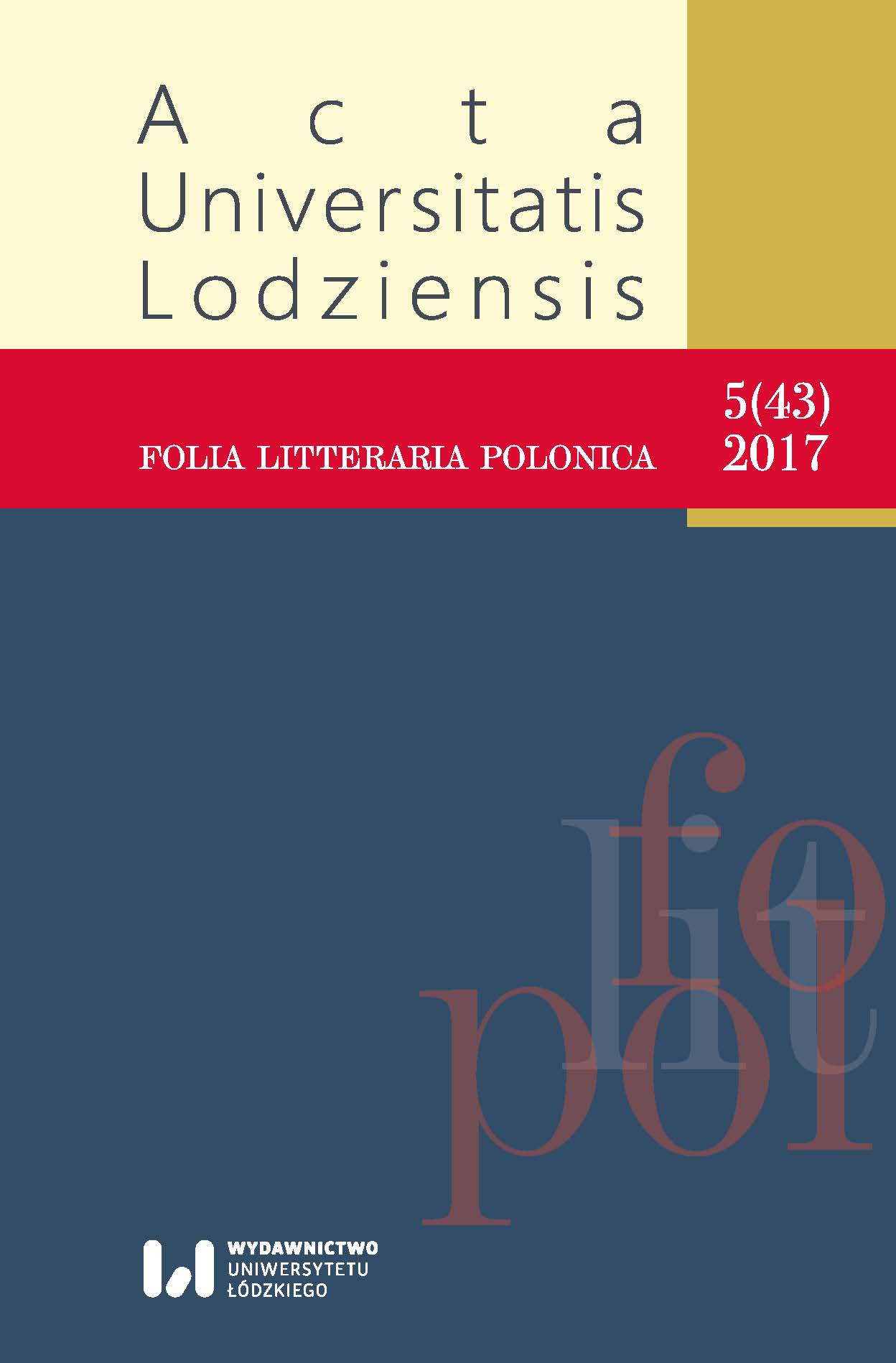Fake news. A continuation or rejection of the traditional news paradigm?
DOI:
https://doi.org/10.18778/1505-9057.43.02Słowa kluczowe:
fake news, news paradigm, authenticity, mediaAbstrakt
In the article, I analysed the problem of fake news in the context of the traditional paradigm of a news story. The traditional paradigm posits that, most of all, a piece of information is true. However in contemporary media, there exist pieces of information which are fabricated and untrue. It is not a new phenomenon, yet it has intensified in recent years. News stories are fabricated for entertainment, political, or commercial purposes. They are carriers of propaganda and profit. The essence of fake news is the intentional misleading of the receiver for achieving the above gains. It is difficult to verify their veracity, and identify fake news items due to their similarity to real pieces of news. That is why they are becoming a part of the media landscape in which we will probably have to exist.
Pobrania
Bibliografia
Dickinson R., “Making up the news: journalism, deviance and social control in news production”, in: “The Routledge Companion to News and Journalism Studies”, S. Allan (ed.), Routledge, London and New York 2012, p. 223–233.
Google Scholar
Elliot D., Culver Ch., “Defining and analyzing journalistic deception”, Journal of Mass Ethics 1992, Issue 7 (2), pp. 69–74.
Google Scholar
Gans H., “Deciding What’s News: A study of CBS evening news, NBC nightly news, Newsweek and Time”, Northwestern University Press, Evanston, Illinois 2004 (1st edition: New York: Pantheon 1979).
Google Scholar
Kitty A., “Don’t Believe It! How Lies Become News”, The Disinformation Company Ltd., New York 2005.
Google Scholar
Levinson P., “Fake News in Real Context”, Connected Editions Inc., New York City 2016–2017.
Google Scholar
Palczewski M., “Kilka uwag o tabloidyzacji newsa”, in: “News i dziennikarstwo śledcze wobec wyzwań XXI wieku”, M. Palczewski, M. Worsowicz (eds.), Wydawnictwo Wyższej Szkoły Humanistyczno-Ekonomicznej, Lodz 2010, p. 73–84.
Google Scholar
Palczewski M., “Twitter jako ponowoczesne źródło informacji”, Dziennikarstwo i Media 2014, Issue 4, pp. 175–196.
Google Scholar
Smith Z.N., Zekman P., “The Mirage”, Random House, New York–Toronto 1979.
Google Scholar
Stephens M., “A History of news”, New York, Oxford University Press 2007.
Google Scholar
“The Changing faces of Journalism. Tabloidization, Technology and Truthiness”, B. Zelizer (ed.), Routledge, London and New York 2009.
Google Scholar
http://asne.org/content.asp?contentid=171 [accessed on: 30.03.2017].
Google Scholar
http://sdp.pl/s/kodeks-etyki-dziennikarskiej-sdp [accessed on: 30.03.2017].
Google Scholar
http://wiadomosci.gazeta.pl/wiadomosci/7,114881,21489598,marine-le-pen-chce-sojuszu-z-jaroslawem-kaczynskim-zloze-mu.html [accessed on: 30.03.2017].
Google Scholar
http://wiadomosci.wp.pl/wpadka-w-programie-tomasz-lis-na-zywo-cytowali-wpis-z-falszywego-konta-kingi-dudy-6025251166573185a [accessed on: 30.03.2017].
Google Scholar
http://www.dziennikarzerp.pl/wp-content/uploads/2010/06/karta_dziennikarzy.pdf [accessed on: 30.03.2017].
Google Scholar
http://www.dziennikarzerp.pl/wp-content/uploads/2010/06/kodeks.pdf [accessed on: 30.03.2017].
Google Scholar
http://www.ifj.org/about-ifj/ifj-code-of-principles/ [accessed on: 30.03.2017].
Google Scholar
http://www.se.pl/rozrywka/gwiazdy/ferdynand-kiepski-nie-zyje-andrzej-grabowski-na-facebooku-uwaga_486125.html [accessed on: 30.03.2017].
Google Scholar
http://www.stopfake.org/en/tag/sweden/ [accessed on: 30.03.2017].
Google Scholar
https://s.tvp.pl/repository/attachment/0/e/e/0eea386c0fa98ad0c49f73f1a9f7c8e71445347977947.pdf [accessed on: 30.03.2017].
Google Scholar
https://twitter.com/ArturZawisza1 [accessed on: 04.12.2013].
Google Scholar
https://www.bloomberg.com/news/articles/2017-01-11/facebook-s-journalism-project-pledges-stronger-media-ties [accessed on: 30.03.2017].
Google Scholar
https://www.document.no/2017/03/22/fake-news-faktisk/ [accessed on: 30.03.2017].
Google Scholar
https://www.spj.org/pdf/spj-code-of-ethics.pdf [accessed on: 30.03.2017].
Google Scholar
https://www.theguardian.com/news/blog/2011/jul/04/fox-news-hacked-twitter-obama-dead [accessed on: 30.03.2017].
Google Scholar
https://www.theguardian.com/technology/2016/dec/16/facebook-fake-news-system-problems-fact-checking [accessed on: 30.03.2017].
Google Scholar











